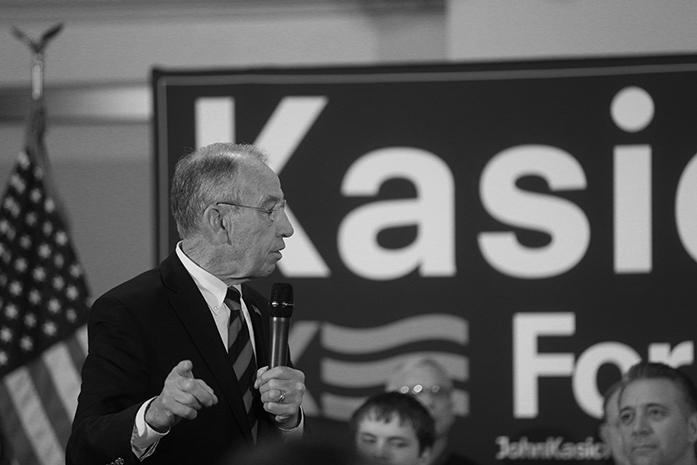As a lawyer and past president of the Iowa State Bar Association (2011-12), I write in support of U.S. Sen. Chuck Grassley, R-Iowa. As chairman of the Senate Judiciary Committee, Grassley is right when he defends the power of the Senate to perform its separate constitutional responsibility pertaining to appointments to the U.S. Supreme Court. This year, some have claimed the president has a “constitutional right and duty to fill a vacancy on the Supreme Court.” In fact, Article II of the U.S. Constitution says the president “shall nominate, and by and with the Advice and Consent of the Senate, shall appoint … Judges of the Supreme Court …” The president has the power only to nominate justices. There is no power to appoint or fill a vacancy on the Supreme Court without Senate approval.
Also missing from the Constitution is any reference to hearings. That means regardless of whom the president nominates, the Senate has the constitutional authority to give its advice and consent — or withhold it. Senators can hold hearings or not hold hearings. That is entirely within the discretion of the Senate in filling its role of advice and consent. It all depends on what the Senate thinks is best for the country and the rule of law.
And it hardly seems prudent for Grassley to have wasted time and taxpayer money having a hearing on a nominee who the majority of the senators announced they would not support. We are fortunate to have as our senator a person who stands on principle even in the face of some particularly vicious and unfounded personal attacks.
In April, the president of the American Bar Association, Paulette Brown, announced the recipients of the prestigious Justice Award. This award recognizes “members of Congress and grass-roots advocates for their support on a variety of issues of importance to the legal profession and the administration of justice.” Grassley and Sen. Cory Booker, D-N.J., received the award for their “leadership on the Sentencing Reform and Corrections Act and juvenile-justice reform.”
Grassley deserves congratulations for this work as well as 28 other bills he led through the Senate Judiciary Committee as chairman this Congress, each one with strong bipartisan support.
— by Robert V.P.
Waterman, Jr.









